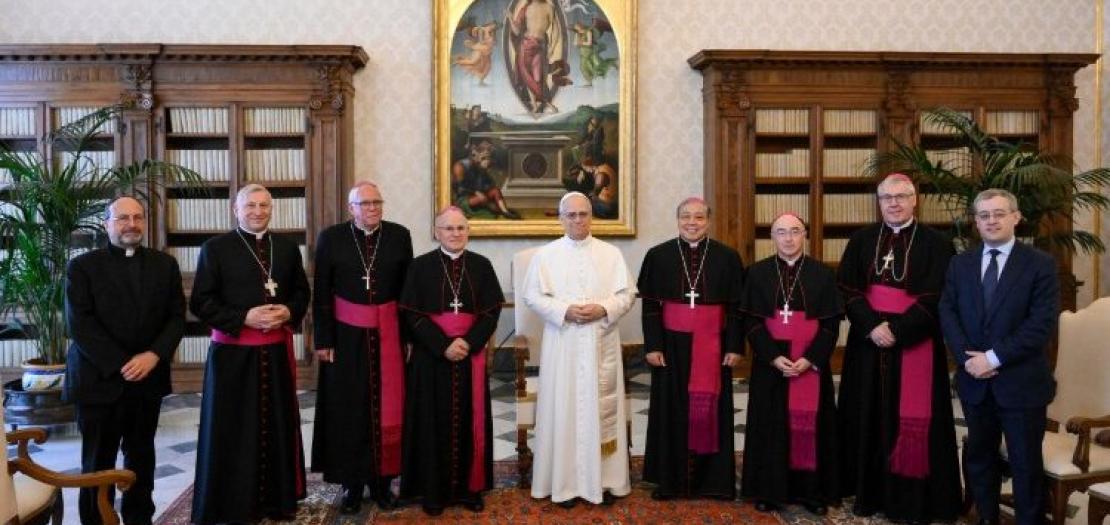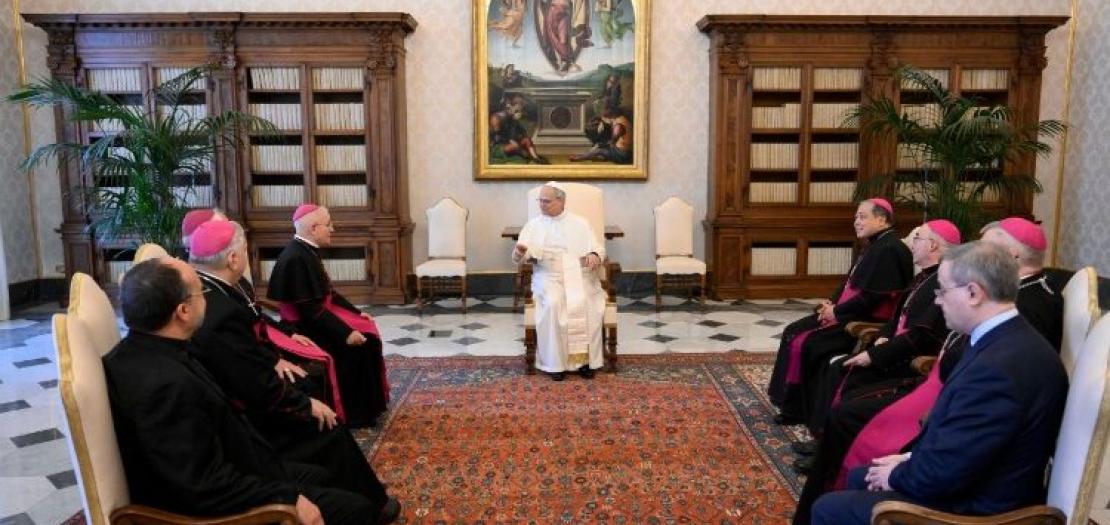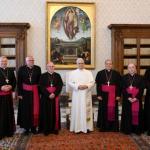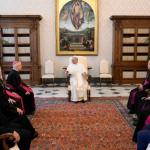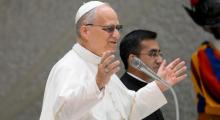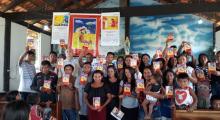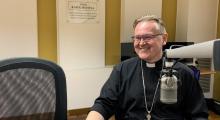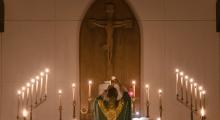Issued by the Catholic Center for Studies and Media - Jordan. Editor-in-chief Fr. Rif'at Bader - موقع أبونا abouna.org
The Apostolic Nuncio to the European Union says it is critical for families in Europe to transmit the faith and that young people are thirsting for this relationship with God, and likewise is reiterating the great concern for peace in the world always-more enveloped by war, even on European soil.
In an interview with Vatican News, Archbishop Bernardito Auza, made this observation, following the Presidency of the Commission of the Bishops’ Conferences of the European Union, or COMECE's, encounter with Pope Leo on Friday morning.
Speaking to Vatican Media in the interview this morning, he reflected on Pope Leo's 'intense' encounter with the Presidency of (COMECE), in which he openly listened to those before him.
The Archbishop, along with the Presidency, had reiterated the Pope's great concern for the war in Ukraine, and the need for a just peace.
Moreover, it was emphasized the Holy Father's dismay for an increased focus on military spending that may come at the expense of support for the most needy and vulnerable."
Archbishop Auza had been appointed Nuncio to the European Union in late March and just began this latest role. He candidly shared, "I just arrived in Brussels yesterday. As a matter of fact, I have not been to the nunciature because when I arrive at the airport, I took the flight to come to Rome for this audience with the pope. So, I mean, it is providential and it's rare," and "such a coincidence that I'm just starting my new mission to the European Union and with the community received today."
The last post of Archbishop Auza, who prior to his latest assignment as apostolic nuncio to the EU, was the nuncio to Kingdom of Spain and the Principality of Andorra. He also had long served as the Holy See’s Permanent Observer to the United Nations in New York.
Therefore, in a special way, the Nuncio remembered that at the encounter, working toward peace and making efforts to end war, especially that of Ukraine, were at the forefront on the conversations.
Amid the "many wars in the world" and "so many conflicts," in places which, the Apostolic Nuncio suggested, it can be challenging to negotiate or find an agreement, "the Holy See could be able to contribute. At least, the Holy Father has made it very clear."
Yet, Archbishop Auza, expressed that other themes were likewise treated with much attention, including the need for transmitting faith in families, the importance of combatting a demographic winter, and the need for migrants to be treated properly and with respect.
In particular, Archbishop Auza discussed the renewed interest in the Church and the faith even among young people.
"In so many countries," he said, "it seems there is really a renewed interest, and even a greater desire, to know more the Catholic Church."
He said that the passing away of Pope Francis and the election of a new Pope also contributed to this rekindled interest. "Even those who are not really experts about the papacy would say something," he noted, saying the theme "entered into everybody's house, everybody's television set, everybody's internet connection."
The Filipino-born Archbishop suggested there is a great hope the Church will give "a new inertia."
During the interview, the Apostolic Nuncio remembered that Pope Leo interjected to reaffirm the interest of young people and children for the faith, despite counter narratives trying to suggest otherwise.
"The Pope mentioned that people, societies, governments will say that, 'you don't need to, or we don't want to talk to the young children, because the children or young people are not interested anymore about religion, about God."
"The Holy Father said, that's not true," instead, "there is a thirst."
In fact, Archbishop Auza recalled how COMECE Vice-President, Archbishop Antoine Hérouard of Dijon, said, 'that's very true,' and how that is reflected in some areas with a record number of baptisms, of people involved in catechism classes.
"There's so much seems to be renewed energy in young people," in this regard, he suggested, acknowledging, this tendency had been "in a sense, lost, probably, for some years now."
"There is still hope. And, you know, you will see that there is a moment of return after so much, probably, 'Oh, we haven't heard of this. We haven't heard of Jesus Christ.' So I think there is so much there that we could do."
The Archbishop reaffirmed how important it is to pass on the faith.
"The question of New Evangelization is fundamentally the question of transmission of the faith from one generation to the next, and that is what constitutes really the structural problem, namely that there is no more channel of transmission, that the parents don't talk about the faith anymore, they don't go to church anymore."
For these reasons, he lamented, children often have not been in churches, observing, "now there is a movement that even to prohibit children from being baptized or being taught about religion," with the thought that this would not be appropriate "until they become adults that they could choose for themselves."
Yet, the Nuncio, maintains, when it comes to "the role of the family in the transmission of faith, I mean, there is no question about this. It's more important than the parish."
"It's more than a transmission," Archbishop Auza argues, "It's more like an osmosis. You put a sponge in the water and it sponsors the whole family there, if you will. Everybody imbibes, you might say, the, the water into that whole space."


